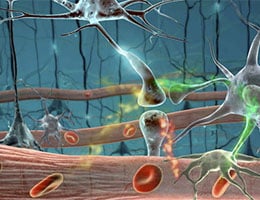 Immunology is the discipline dedicated to studying biological immunity . This is the name given to the particular response of an organism to an antigen or to the state of resistance that a species or an individual has against certain pathogenic actions.
Immunology is the discipline dedicated to studying biological immunity . This is the name given to the particular response of an organism to an antigen or to the state of resistance that a species or an individual has against certain pathogenic actions.
The immune system , also called the immune system or immune system , is made up of the structures and processes that allow an organism to recognize a foreign element (external or internal) and provide a response . This immunological or immune response aims to restore balance ( homeostasis ).
Immunology is called, in this framework, the specialty that analyzes the functioning of the immune system , whether in a disease situation or in a healthy organism. In addition to the physiological, chemical and physical characteristics of the various elements that make up the immune system, it also studies functional disorders, such as immunodeficiencies and autoimmune diseases.
The origins of immunology date back several centuries before Christ . In Ancient Greece , it was detected that people who recovered from certain infections were left with protection against the disease in question. From then on, immunological phenomena began to be investigated.
It is possible to recognize various branches of immunology. Clinical immunology focuses on diseases that cause disorders of the immune system, taking into account disorders caused by hypersensitivity, autoimmunity and immunodeficiency. Immunotherapy , meanwhile, considers the use of elements of the immune system to treat a disorder or disease. Cellular immunology , humoral immunology , neuronal immunology , and evolutionary immunology are other classes of immunology.
The chemist and bacteriologist Louis Pasteur , originally from France, proved that vaccination was effective despite not knowing the reasons. For their part, Shibasaburo Kitasato and Emil von Behring presented in 1890 the first layer of information about the way the immune system works and demonstrated that serum from other animal species previously immunized against diphtheria could pass immunity to individuals who had not been immunized.
 A few years later, various scientists were able to prove that the immune serum had an active component capable of precipitating and neutralizing toxins , in addition to agglutinating bacteria. The name they gave to this component is antitoxin, precipitin and agglutinin , although later Elvin Kabat proved that immunoglobulins were what caused all the activities just described. Antibodies , in fact, are the active molecules of immunoglobulins.
A few years later, various scientists were able to prove that the immune serum had an active component capable of precipitating and neutralizing toxins , in addition to agglutinating bacteria. The name they gave to this component is antitoxin, precipitin and agglutinin , although later Elvin Kabat proved that immunoglobulins were what caused all the activities just described. Antibodies , in fact, are the active molecules of immunoglobulins.
Epidemiology is a discipline that is part of medicine and focuses on the study of the frequency, factors and distribution of diseases that occur in human populations. Classical immunology is one of its fields and aims to study the link between immunity, pathogens and body systems .
The first known writing about immunity is about the plague that took place in Athens in 430 BC. C., approximately. The historian and soldier Thucydides discovered that people who had overcome an attack of the disease were capable of caring for the sick without becoming infected, something that may seem logical today but was not known at the time.
Although many other scholars appreciated the same phenomenon , it was only at the end of the 19th century and the beginning of the 20th that science devoted adequate attention to it. The study of the immune system, including its molecular and cellular components, the function of each one, and the way in which it interacts with others, is the main focus of immunology.
